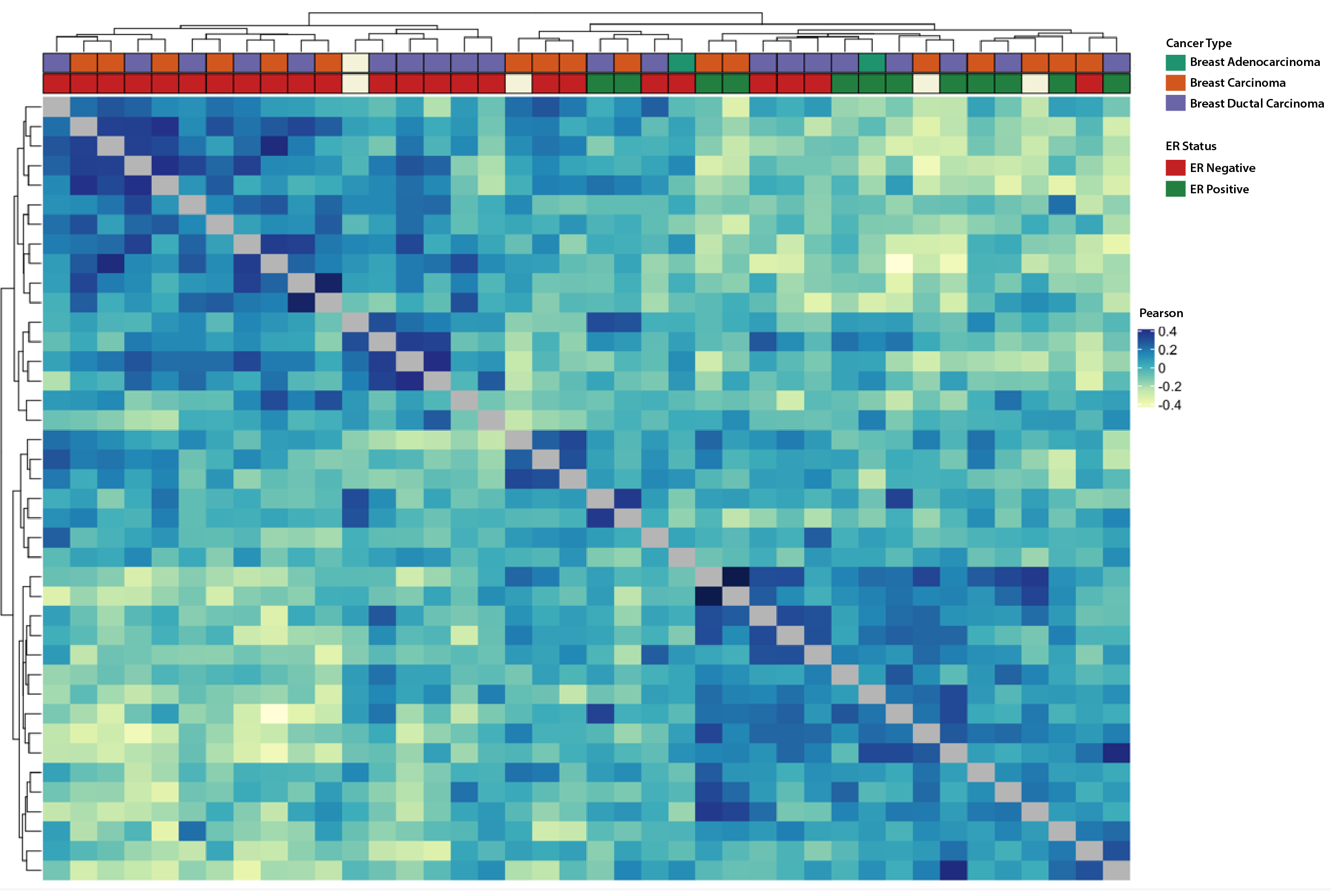Tony Di Sera, who will graduate in the Summer of 2021 from the Master of Information and Data Science program, has been awarded the Jack Larson Data for Good Fellowship for her wide-ranging contributions to genomic research using data science and visualization. The fellowship supports MIDS students who desire to use data science to benefit society.
A deep learning model that predicts cancer drug response
As a senior software developer in the Department of Human Genetics at the University of Utah, Di Sera is working on a deep learning model that predicts cancer drug response based on the molecular characteristics of the tumor cells. Because cancer is a heterogeneous disease, treatment is most effective if it’s tailored to the molecular characteristics of the specific tumor in each case. These characteristics include the mutations that the tumor harbors that have arisen randomly in its DNA (somatic mutations) and the expression patterns of RNA in the tumor cells (gene expression).

Di Sera is particularly passionate about this new realm of “precision oncology” and about the potential of using machine learning models to guide this kind of treatment. “The goal,” she says, “is to be able to identify drugs for which a patient has exceptional response.”
Her model takes as input the chemical structure of the drug along with the somatic mutations and gene expression patterns of the tumor to learn how the cancer cells will respond to particular drugs. “We train this model on large-scale drug screens that have been performed on cell lines—a culture of tumor cells that can be propagated repeatedly,” she said. “Then, we validate the model on patient-derived organoids. These organoids mimic the biological characteristics of the tumor in the 3-D environment, offering an experimental model that closely resembles the actual tumor.”
Data visualization for humanitarian aid
And the computational biology lab is merely Di Sera’s day job— this past year, she took a semester off from school to collaborate with a team of researchers working with Professor Josh Blumenstock to examine the effects of the Covid-19 pandemic on the residents of Togo.
“Tony volunteered countless hours building interactive data dashboards, which help policymakers visualize the areas of their countries most in need of humanitarian help,” Professor Blumenstock said. “These dashboards have been seen and used not only by the research community, but also by cabinet-level government officials in multiple countries.”
Di Sera will graduate from the MIDS program later this summer and says that it’s thrilling to work at the intersection of the fields of biology, medicine, and artificial intelligence. “There’s an incredible wealth of knowledge about the human genome that’s publicly available; machine learning models can benefit from this knowledge,” she said. “This demands a multidisciplinary approach where data scientists, biologists, and clinicians work together to build models that reflect the nuances of this ever-growing, rapidly changing body of scientific knowledge.”










